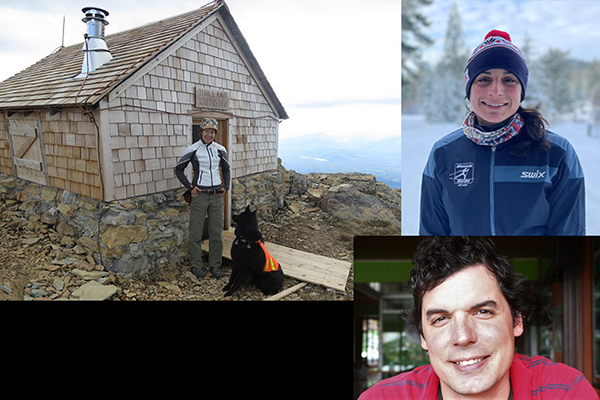Armatas, Carim, and Holsinger earn station awards

Each year, the Rocky Mountain Research Station recognizes the accomplishments of outstanding employees (nominated by their peers) across a variety science, science support, and other categories. In May of 2022, three Aldo Leopold Wilderness Research Institute (ALWRI) scientists received 2021 station awards. These scientists and the awards they received are:
Chris Armatas - Technology Transfer Award
The Technology Transfer Award recognizes the effective transfer of published scientific information to decision makers and other user groups.
Dr. Armatas, in collaboration with other scientists, developed an approach to bring social science into the public engagement and participation spheres through a 'Social vulnerability protocol'. The approach aims to understand diverse perspectives around the importance of public lands, as well as the drivers of change influential to people's human-nature relationships.
Chris's technology transfer efforts, which have gone well beyond publications, include multiple published webinars and a “Science You Can Use” publication. Importantly, his social science approach (and Chris himself) has supported multiple national forests with engaging the public during broad-scale forest planning and comprehensive river management planning.
Kellie Carim - Early Career Scientist Publication
The Early Career Scientist Publication Award recognizes outstanding publications of scientists in the early part of their careers.
Dr. Carim is the lead author on the manuscript “Environmental DNA sampling informs fish eradication efforts: case studies and lessons learned.” Kellie and the research team used three case studies that involved the use of eDNA to help with the removal of invasive brook trout which are impacting the restoration of native species such as Yellowstone Cutthroat trout. In short, this manuscript demonstrated how eDNA can be used to restore ecosystems and preserve native species.
Importantly, this research was co-produced with members of the Kalispel Tribe of Indians, Washington Department of Fish and Wildlife, and Montana Fish Wildlife and Parks, and the manuscript provides a framework for managers to use when assessing how best to use eDNA to help with eradication of invasive species and restoring ecosystems.
Lisa Holsinger – Outstanding Science Support
The Outstanding Science Support Award recognizes a technical or professional employee who provides exceptional support to the research mission.
Over the last several years, Lisa has provided exceptional geospatial, analytical, and modelling support on various projects that has resulted in nearly two dozen publications since 2016. Lisa provides science support to two RMRS programs and multiple research scientists regularly demonstrating her broad skillset and the value she provides to advancing the RMRS and ALWRI missions.
Lisa is regarded as one of the most efficient and best geospatial analysists in the Forest Service. Many projects simply would not have been achievable without her contributions. For example, our line of research intended to Improve mapping of fire effects using satellite data largely hinged on Lisa’s Earth Engine expertise. Because the Earth Engine code Lisa co-developed is publicly distributed with these publications, other researchers and practitioners can and do use the code for their own purposes.